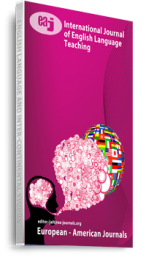This study investigates the effect of gender on the quality of interpreting by 30 Iranian BA students of English translation and interpreting. In the experiment, the control group (7 males, 8 females) received the routine instruction of the interpreting curriculum. The experimental group (7 males, 8 females) spent less time on the routine syllabus and instead received explanation of prosodic concepts and did prosodic exercises as participants in the two groups were matched on the basis of their scores on a pre-test of general English proficiency. Interpreting performance was assessed in a post-test by having three experts rate ten aspects of interpreting quality. Then, t-tests were run on the male and female subsamples to see whether gender affects the performance of participants in the pre- and posttest and in the difference between the two test scores. There is a slight (but statistically insignificant) advantage for women both in the pre-test (8 points better on average on the scale from 0 to 700,) and in the post-test (3 percentage points, but again insignificant). These results have implications for designers of curricula for training interpreters, material producers and all who are involved in foreign-language study and pedagogy
Keywords: Consecutive Interpreting, Gender, Interpretation, foreign language learning

